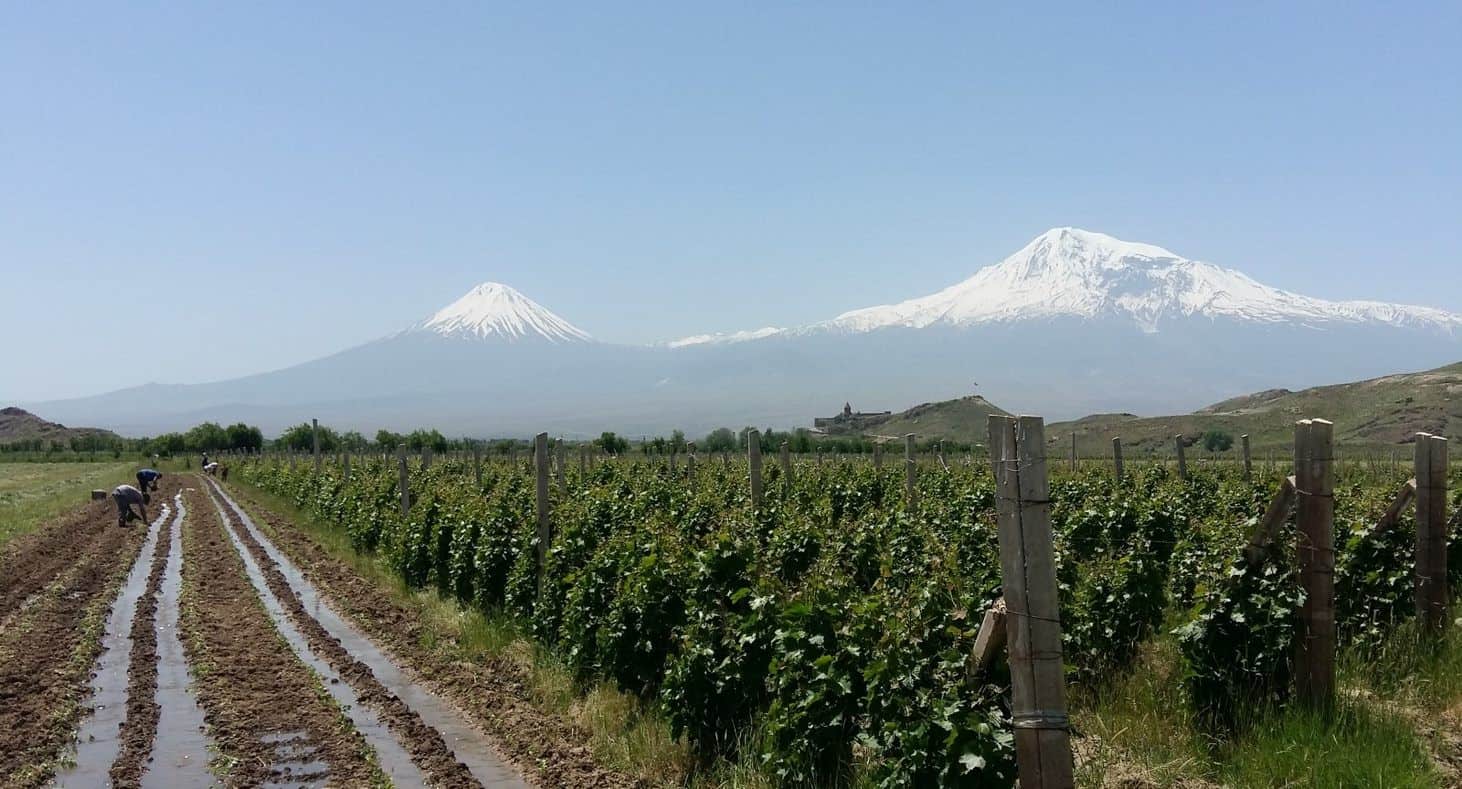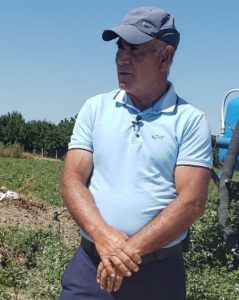
ASPIRED Partnership Benefits 400 Farmers in Small Community in Armenia’s Ararat Valley
Pokr Vedi is a small community on the left bank of the Araks River in the Ararat region. Agriculture provides the main livelihood for the local population; fruit orchards represent the primary source of income. The village has a population of nearly 3,300.
The adequate supply of water for irrigation is of utmost importance to secure a stable income and decent livelihoods for the villagers. The community had been getting water for irrigation from two sources, but the deteriorated network and significant water losses did not permit proper irrigation of fields. In 2020, the Pokr Vedi irrigation system was upgraded through a partnership between the USAID-funded Advanced Science and Partnerships for Integrated Resource Development (ASPIRED) and Participatory Utilization and Resource Efficiency of Water (PURE Water) projects, “Hayastan” All Armenia Fund, and the Artashat Water Users Association.
Gevorg Sheroyan is one of more than 400 farmers benefiting from the renovation of the irrigation system. Gevorg, a mechanics teacher by profession, was born and grew up in Pokr Vedi. He taught mechanics in the village school for 37 years, sharing his knowledge and experience with school children in the use of agricultural machinery. Gevorg is also an experienced farmer. In 2008, he introduced drip irrigation system in his greenhouse to increase yield and improve crop quality.
Gevorg noted that the ASPIRED Project solved the most important problem, i.e., huge water losses in the irrigation network. Encouraged by this, in the spring of this year on his own initiative and expense, Gevorg installed a drip irrigation system on his1.6 hectares of land for the commercial production of quality tomatoes.
“The increased water supply and proper pressure ensured smooth operation of the pump and I was able to successfully operate a drip irrigation system in this field. This system will allow irrigating up to 20-30 hectares of land. Thus, I’m planning to expand the drip irrigation into another four hectares.”
Gevorg invested approximately USD 4,200 in installing a drip irrigation system including filters and pipes purchased from Russia. The ASPIRED Project helped Gevorg upscale and expand the economic gains of his farm by the installation of a new irrigation system. This increased his yield three times, improved crop quality, and created additional jobs for the community.
Beneficiaries like Gevorg enhance the project’s impact through the improved livelihood of both the community and individuals; community members value the use of innovative technologies and invest in them to improve their own businesses. Gevorg’s experience is a shining example of sustainable development in rural communities.
“The tomato yield is actually three times more than that of the traditional fields. If I subtract the investment expenses, my yield was doubled, and I generated more income. The increased yield is creating additional jobs. At present, I have 15 employees, both men and women, who work and collect the harvest. The higher the yield, the more people will be involved in the harvest. After all, improved livelihood is gained through work.”
Before the improvements, the network’s losses were about 40 percent. The competed project resulted in annual water savings of approximately 936,000 m3, while energy savings totaled 341,640 kWh during the irrigation season. The annual financial benefit from saved energy is around AMD 13.3 million or USD 27,400. This project is proof that multilateral operation, joint efforts and investments benefit hard working farmers and the community at large.
USAID/Armenia awarded ASPIRED to ME&A as a task order under the Water and Development Indefinite Delivery Indefinite Quantity Contract (WADI) providing the USAID Bureau for Economic Growth, Education, and Environment with services and technical support to assist USAID’s Missions, Bureaus, and Offices worldwide in the implementation of the Agency’s Water and Development Strategy.
Under ASPIRED, ME&A collaborates with the USAID/U.S. Global Development Lab/Center for Data, Analysis, and Research (DAR), the U.S. Geological Survey, and other relevant institutions to pilot innovative technologies for water conservation and fish farms; establish transformational partnerships; and promote evidence- and science-based water resource monitoring, planning and management. In addition, ME&A also works with the private sector, academia, and other donors to leverage their resources and expertise in the Armenian water and energy sector.
- About the Author
- Latest Posts
Monica Jerbi, ME&A’s Communications Advisor, has more than 30 years of experience, much of it as a USAID contractor. Her expertise includes designing and implementing behavioral, attitudinal, and informational communication campaigns as well as researching, writing, editing, and designing print and digital communications and knowledge management products.




